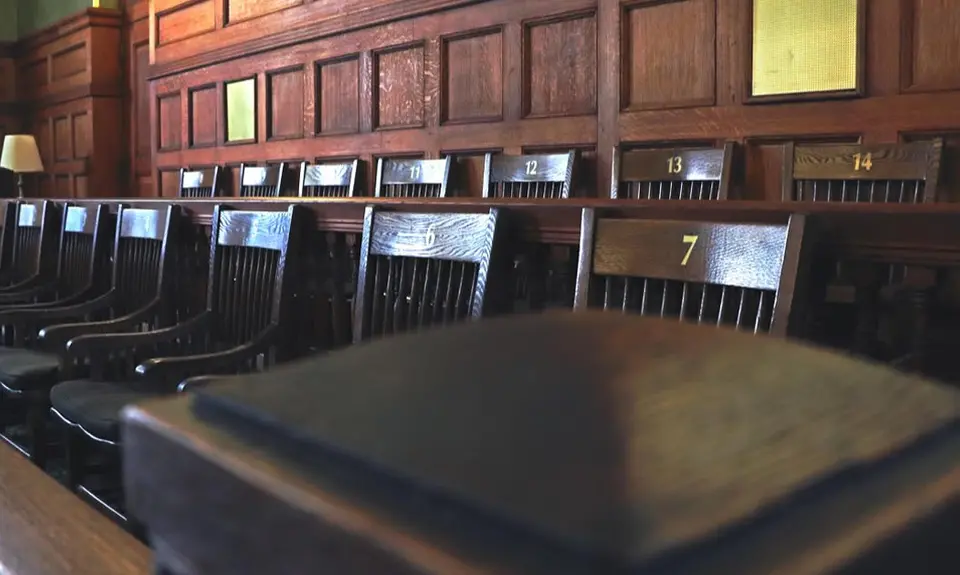“Confirmed Judges, Confirmed Fears” is a blog series documenting the harmful impact of President Trump’s judges on Americans’ rights and liberties. Cases in the series can be found by issue and by judge at this link.
Trump Seventh Circuit judge Amy St. Eve wrote a 2-1 decision that reversed a district court and upheld a vague Indiana law that requires providers, on pain of criminal penalty, to notify state officials of complications “arising from” abortion. The August 2021 decision was in Planned Parenthood of Ind. and Ky. v Marion County Prosecutor.
A 2019 Indiana criminal law requires that doctors and other providers report to the state any specified complications “arising from” abortions. Twenty-four specific conditions are listed that could result from abortion or other causes, such as infection, vaginal bleeding, shock, cardiac arrest, and “[p]sychological complications,” as well as a catch-all category of “[a]ny other adverse event” as defined by FDA criteria. Each failure to report can be punished by 6 months in prison and fines, plus possible loss of license.
Serious concerns were raised about the vagueness of the law. As even Trump judge St. Eve later conceded, the law fails to provide any “objective guidance” on the extent to which a condition must be “caused by the abortion itself.” The law does not require proof of specific intent or “scienter,” she went on, even though it can result in “imprisonment.” Overall, she agreed, the law “provides few guideposts to inform practitioners of the conduct that is expected of them,” especially when compared with other states. Planned Parenthood brought a challenge to the law, and a district court, for these and similar reasons, ruled that the statute was unconstitutionally vague and entered an injunction against it.
On appeal, however, Trump judge St. Eve wrote a 2-1 decision reversing the district court and ruling that the law was not unconstitutionally vague on its face. Despite the problems she acknowledged above, she wrote that there was a “discernable core” that could be found in the statute, and that it should be interpreted to apply to complications that a “reasonable doctor would find to have arisen from an abortion.” According to St. Eve, this would allow the law to go forward and any other issues could be dealt with as the statute actually goes into practice.
Judge Diane Wood explained what was wrong with the majority opinion in her dissent. The Supreme Court has made clear, she wrote, that when a legislature has written a vague and “incomprehensible” law as in this case, a court should not “take a red pencil” and rewrite it. Instead, Wood went on, the Court has ruled that the “only choice is to strike it down as void for vagueness,” so that the legislature can then fulfill its proper role of rewriting it, not the courts. The courts have adhered to that principle in numerous cases, including on controversial issues like “gun ownership” and “violence against women”, Wood pointed out, and they should not “bend over backwards” to rewrite a restrictive “abortion law.”
Judge Wood went on to explain that St. Eve’s attempt at judicial rewriting of the law still left it improperly vague. Shortly after referring to the “reasonable doctor” standard referenced above, she wrote, the majority appeared to adopt a more “subjective standard,” stating that a provider must report a complication “which the treating physician believes in her reasoned medical judgment to have arisen from an abortion.” The inevitable result is a “guessing game,” under which providers may under and over report complications in different cases, risking “criminal liability” without even a specific intent requirement. Overall, Judge Wood concluded, the Indiana law “cannot be enforced consistently” with the Constitution, and should have remained invalid.
The actual effects of the Indiana law remain unclear and will depend on how the state seeks to enforce it. There is clearly a risk of improper punishment of abortion providers and thus more difficult access to abortion. The case emphasizes the importance of Senate confirmation of Biden nominees to the Seventh Circuit and throughout the country, as part of our fight for our courts, in order to avoid judges like St, Eve who “bend over backwards” to uphold restrictive abortion laws.
